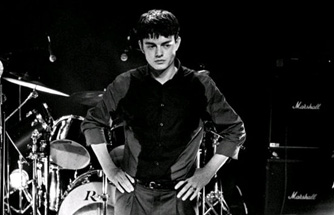|
|
Movie Review: ControlBy Matthew HuntleyNovember 15, 2007
What's interesting about Ian Curtis (Sam Riley), at least in the way the film depicts him, is that he's not a "typical" junkie or a womanizer. The Hollywood biopic has become so conventional that audiences expect their subjects to be archetypal drug users with out-of-control libidos. And while such stories can work wonderfully on film (Ray, Walk the Line), it seems the studios are only willing to tell them a certain way. Curtis' story is different from most because, unlike Ray Charles or Johnny Cash, he was practically a child at the height of his career. When we first meet Ian, he's a quiet recluse who finds inspiration and peace of mind through David Bowie and Iggy Pop. At 18, outside a Sex Pistols concert, he meets Peter Hook (Joe Anderson), Stephen Morris (Harry Treadaway), and Bernard Sumner (James Anthony Pearson), and they form a band called Warsaw. At their first recording session, Curtis changes their name to Joy Division (it refers to women in Nazi concentration camps who prostituted themselves for soldiers on leave; the name was originally described in the novel The House of Dolls). After a successful gig that gets the crowd jumping, the group hires Rob Gretton (Toby Kebbell) as their manager, and thanks to Curtis insulting Tony Wilson (Craig Parkinson), eventually make their way onto Wilson's television show, So It Goes. They go on to self-release their first extended play and tour around Europe. Eventually, Gretton books them for a two-week tour around America they'd never end up playing. But Control isn't about Joy Division as much as it is Curtis' personal battles with his declining health, epileptic "fits" and his relationship with his young wife, Deborah, whose book, Touching From a Distance, was the basis for Matt Greenhalgh's screenplay.
|

|
|
|

|
Thursday, October 31, 2024
© 2024 Box Office Prophets, a division of One Of Us, Inc.


